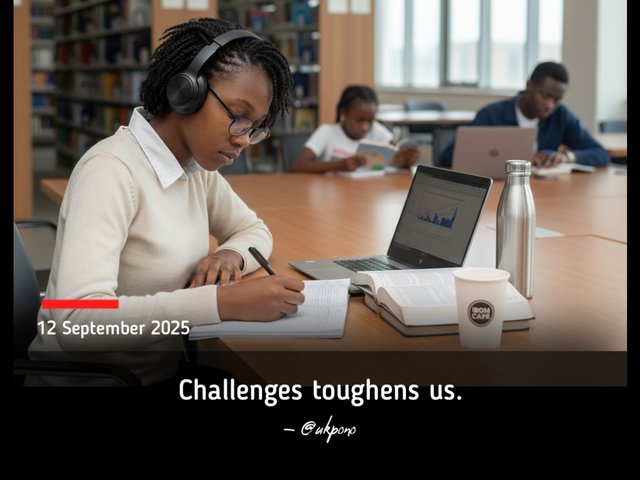Climbing a steep mountain
One of my greatest challenges in college was sourcing for study materials.
I remember feeling overwhelmed when a lecturer asked us to compare and contrast the nature, formation, and enforcement of contracts under two unpopular Nigerian legal systems.
These answers weren't easily found in journals, textbooks, or past research works. It was a question that required days of rigorous Google searching.
I typed in every keyword imaginable, hoping a valuable resource would pop up and give me a head start.
You might be wondering, “Why didn't you ask someone or AI for help?”
For me, both were tough climbs.
Asking senior colleagues or AI for help wasn't my thing. And the option of meeting the professor for more clarification never crossed my mind.
Like.... Abeg oooo. Who wan dig pit for me? 😭
Challenges toughen us, and helps us develop unique problem-solving abilities. In my case, I eventually learnt that the key to climbing this mountain was about building a toolkit.
I gradually discovered how to find resourceful materials without having to rely entirely on AI. Check out my top go-to sites below:
These are places where you can find scholarly research materials.
Google Scholar: Unlike regular Google, this platform filters only for academic articles, theses, books, and case laws. I used it often for my literature reviews.
Research Gate: I discovered that some of my lecturers and senior colleagues published their works here.
Google Books: Came in handy when I needed a great place to preview books or get a quick overview of a topic. You can often find snippets that give you the information you need without buying the full book.
Study.com: They break down complex topics into smaller, clearer chunks.
Studocu: It's built for students to share notes and summaries. You can find any lecture notes and past exam questions from any University or educational institution.
Scribd: A large digital library for documents, scholarly papers, and e-books.
NOUN e-Courseware: These resources were designed for NOUN students. But, I promise you that the explanations are so simple, compared to the conventional textbooks. Also, they are free and accessible. Just type in your course title and NOUN download. For example, “Structure of modern English NOUN download”.
Coursera: This is just another university of its own.
YouTube: I used YouTube to find explainer videos and lectures that visually break down complex concepts.
TikTok: Beyond entertainment, TikTok offers engaging videos that can introduce academic concepts or a key term in a fun and memorable way.
LinkedIn: You'd find rich articles and professional groups here. Also, academics on the platform are always willing to help.
Quora: I used this for finding real human perspectives. I'd ask or search for specific questions and get answers from people who had direct experience or expertise on the topic.
The climb up that academic mountain was tough, but I didn't have to do it alone. These sites made my final-year school research project less stressful. I'd recommend them to any student reading this as well.
What resources do you use? Share them in the comments.
Join our student support group where we share more tips and insights to help you scale higher in your academics.
Published 12 September 2025


Thank you for the support.